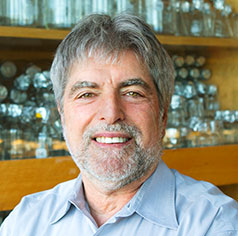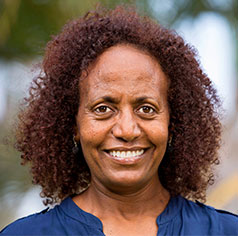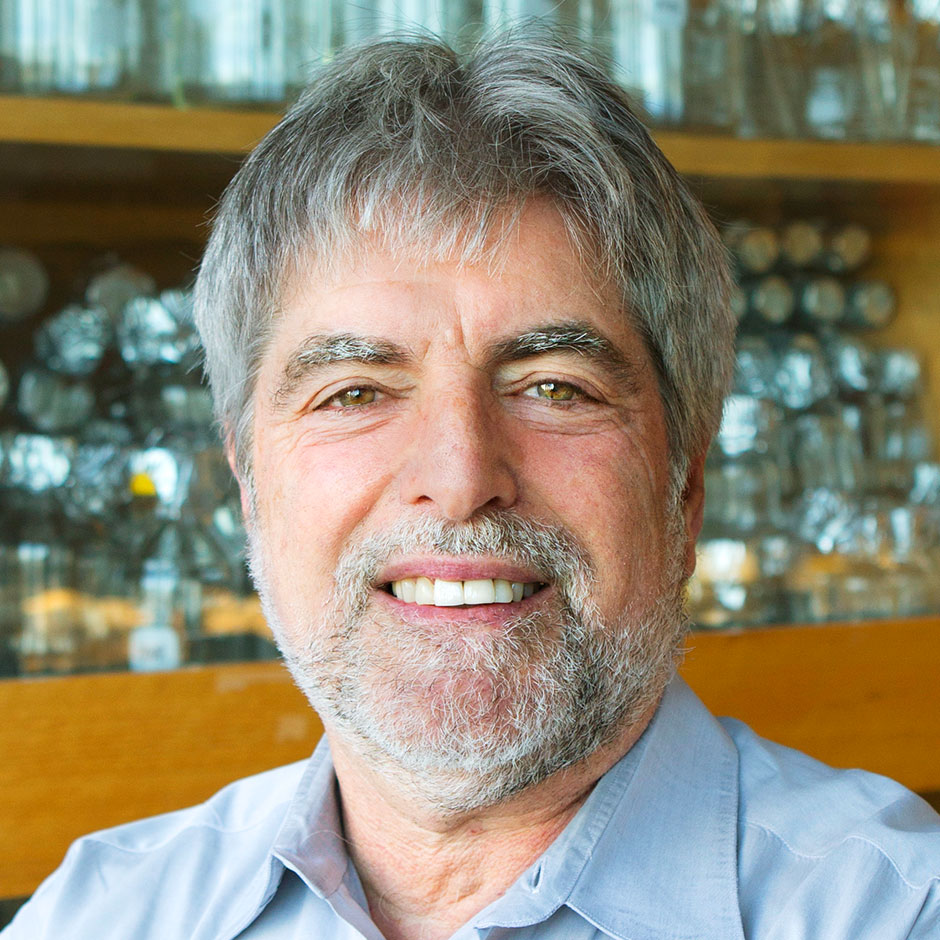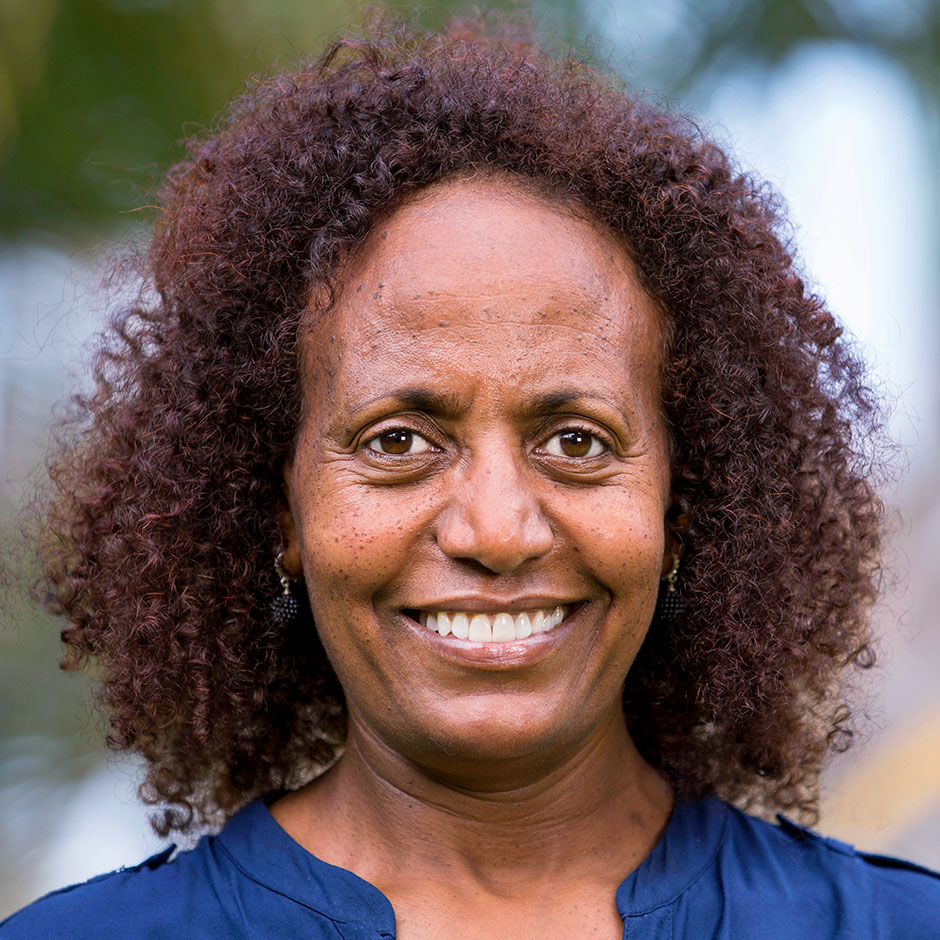A story half told








At Pfizer, life is our inspiration. And our passion and purpose is to help people live life to the fullest, at every stage of life.

Patients with metastatic breast cancer have unique needs. First of all, they realize they're probably always going to be in treatment to keep this disease stable for as long as possible. The mission is control, and not cure, and that can be a hard thing to have to wrap your mind around. We owe it to these women to make sure society as a whole understands their situation and how they are coping with it and what help and support they need. These women are warriors, and I look at them in awe.
On February 3, 2015, the U.S. Food and Drug Administration (FDA) granted accelerated approval of Ibrance® (palbociclib), in combination with letrozole, for the treatment of post-menopausal women with estrogen receptor-positive, human epidermal growth factor receptor 2-negative (ER+/HER2-) advanced breast cancer as initial endocrine-based therapy for their metastatic disease. Ibrance, an oral kinase inhibitor, was reviewed and approved under the FDA's Breakthrough Therapy designation and Priority Review programs.
The FDA approval of Ibrance is based on the final results of the Phase 2 PALOMA-1 trial. The study demonstrated that the combination of Ibrance and letrozole prolonged progression-free survival compared with letrozole alone, a standard of care, in post-menopausal women with ER+/HER2- locally advanced or metastatic breast cancer. Detailed results from the PALOMA-1 trial have been published in The Lancet Oncology.
Prior to the FDA approval of Ibrance, patients with ER+/HER2- advanced breast cancer had not seen a first-line treatment advance in more than 10 years. This is the most common type of advanced breast cancer, affecting an estimated 60 percent of patients.
Ibrance selectively inhibits cyclin-dependent kinases (CDKs) 4 and 6, key regulators of the cell cycle, to regain cell cycle control and block tumor cell proliferation. Ibrance is being developed by Pfizer in ER+/HER2- breast cancer across stages and treatment settings, and several Phase 3 studies are underway globally. In addition, Pfizer has initiated external collaborations to evaluate Ibrance in other tumor types.

Over the past few years, CTI has built not only a strong scientific staff and promising pipeline but also outstanding collaborations — with academics, foundations and the NIH — in a pioneering effort with the goal of speeding up the drug delivery process.
Pfizer's Centers for Therapeutic Innovation (CTI) is a unique model for collaboration between academic investigators, patient groups, the National Institutes of Health and industry, designed to bridge the gap between early scientific discovery and its translation into new medicines. With four locations in the biomedical research hubs of Boston, New York, San Diego and San Francisco, CTI's open innovation model puts Pfizer scientists in the lab with academic investigators, where they share their understanding of target biology and translational medicine expertise. Pfizer provides access to select Pfizer molecules, proprietary screening methods, development technologies, and a wealth of dedicated resources and support from Pfizer experts in drug development and protein sciences.
Pfizer funds (or co-funds with patient foundations) pre-clinical and clinical development programs and offers equitable intellectual property and ownership rights and access to proprietary technologies. The ultimate goal of each collaborative project is to create a drug candidate that can be moved into further clinical testing.
CTI now has more than 25 academic institutions and five patient group foundations in its network, with a portfolio of projects across a variety of disease areas.
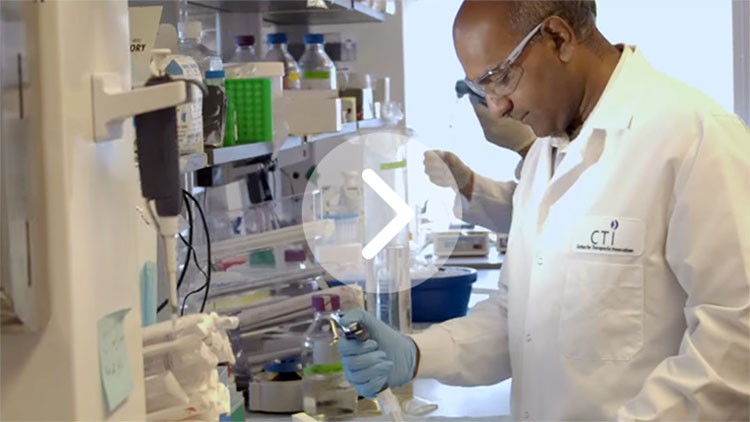
Watch the Focus on Lupus — Pfizer Centers for Therapeutic Innovation (CTI) video

With Pfizer's support, we're empowering older people, health workers and community volunteers in Tanzania to prevent and manage chronic, non-communicable diseases. This intergenerational program is groundbreaking work that sets the pace on how societies should respond to population aging.
HelpAge International and Pfizer have worked together since 2012 to reduce the impact of non-communicable diseases
(NCDs) among older people in Tanzania. During the first two years, the initiative began supporting the Government of
Tanzania's efforts to provide appropriate health services to older citizens. NCDs include a range of chronic conditions,
including cancer, diabetes, cardiovascular disease and hypertension, as well as Alzheimer's and other dementias. They are
commonly thought of as diseases of affluence,
whereas, in reality, four-fifths of deaths from NCDs are in low- and
middle-income countries and older people in developing countries are particularly at risk. Prevention through an active
and healthy lifestyle can turn some of these debilitating diseases into manageable conditions.
The ongoing project focuses on developing health messaging through an intergenerational approach. It pilots a range of community-based activities aimed at promoting prevention and management of NCDs by practicing healthy lifestyles, while working with health providers at local and national levels to improve prevention, early diagnosis, follow-up and treatment of NCDs as well as improving on data collection and analysis to inform appropriate policies. While the community-based activities are carried out in Morogoro, Kibaha and Songea districts in collaboration with organizations of older people, the curriculum reform and support to improve health information management will be undertaken together with the Ministry of Health and Social Welfare at various levels.

Meningococcal meningitis B is a devastating disease, which, though rare, significantly impacts affected individuals and families. Vaccines have been available and recommended since 2005 to help protect against four other serogroups of meningococcal disease, and we hope that Trumenba will become a recommended vaccine in routine adolescent immunization programs to help prevent meningococcal B disease.
Trumenba (meningococcal group B vaccine) is the first FDA-approved vaccine for active immunization to prevent invasive disease caused by Neisseria meningitidis serogroup B in individuals 10 through 25 years of age. Trumenba was reviewed and approved under the FDA's Breakthrough Therapy designation and Priority Review programs.
The unmet medical need was great. This disease is characterized by high fatality rates and rapid onset, often within 24 hours. For individuals 11–24 years of age, approximately 30 percent of meningococcal disease is serogroup B in the U.S., and 10 percent of these cases result in death.1 As many as 60 percent of adolescent survivors of meningococcal disease, 15–19 years of age, suffer from permanent life-altering consequences such as hearing loss, neurologic damage, or loss of a limb.2 Between the years 2010 and 2012, the estimated average number of annual serogroup B cases in 11- through 24-year-olds was 48–56 cases in the U.S.3
1 Centers for Disease Control and Prevention. Prevention and Control of Meningococcal Disease: recommendations of the Advisory Committee on Immunization Practices (ACIP). MMWR Recomm Rep. 2013 March 22; 62(RR02); 1–28. http://www.cdc.gov/mmwr/preview/mmwrhtml/rr6202a1.htm. Last updated March 22, 2013. Accessed November 17, 2014.
2 Borg J, Christie D, Coen PG, Pooy R, Viner RM. Outcomes of Meningococcal Disease in Adolescence: prospective, matched-cohort study. Pediatrics. 2009; 123: e502–e509.
3 MacNeil J. Epidemiology of Serogroup B Meningococcal Disease, United States. Advisory Committee on Immunization Practices, October 30, 2014. http://www.cdc.gov/vaccines/acip/meetings/downloads/slides-2014-10/mening-02-MacNeil.pdf.

With a population that is living longer, the prevalence of nonvalvular atrial fibrillation is increasing, but many patients are still not being managed effectively with warfarin.
Eliquis (apixaban) is a novel oral anticoagulant (NOAC) jointly developed by Pfizer and Bristol-Myers Squibb (BMS). Eliquis was approved in the United States and the European Union in 2012 to reduce the risk of stroke and blood clots in people who have nonvalvular atrial fibrillation (NVAF), a type of irregular heartbeat, not caused by a heart valve problem.
Although it was launched third in the NOAC class, Eliquis has gained significant momentum worldwide due to its differentiated efficacy and safety profile versus warfarin.
Another key element of success for Eliquis has been the strong partnership between BMS and Pfizer from clinical development of the asset to its commercialization. Due largely to this successful partnership, Eliquis has recently become the number one NOAC prescribed by cardiologists for new to brand patients in the United States, Japan and several other major markets.
In 2014, the European Commission and the U.S. Food and Drug Administration approved Eliquis for new indications in the EU and the U.S. to treat blood clots in the veins of the legs (deep vein thrombosis) or lungs (pulmonary embolism), and reduce the risk of them occurring again. In the U.S., additional indications to reduce the risk of forming a blood clot in the legs and lungs of patients who have undergone hip or knee replacement surgery was also approved in 2014.
Eliquis (apixaban) is an oral selective Factor Xa inhibitor. By inhibiting Factor Xa, a key blood clotting protein, Eliquis decreases thrombin generation and blood clot formation. Eliquis is approved for multiple indications in the U.S. based on efficacy and safety data, including results from seven Phase 3 clinical trials. Eliquis is indicated to reduce the risk of stroke and systemic embolism in patients with nonvalvular atrial fibrillation; for the prophylaxis of deep vein thrombosis (DVT), which may lead to pulmonary embolism (PE), in patients who have undergone hip or knee replacement surgery; for the treatment of DVT and PE; and to reduce the risk of recurrent DVT and PE following initial therapy.
Eliquis® is a registered trademark of Bristol-Meyers Squibb.

There is a story behind each mother, child, and family's experience. We learn from each of these stories to make sure women and their babies receive high quality care so they survive pregnancy and the weeks after birth.
The USAID/Indonesia Expanding Maternal and Neonatal Survival (EMAS) Project is a five-year (2011–2016) cooperative agreement, implemented by Jhpiego Corporation, RTI International, Save the Children, Muhammadiyah and Budi Kemuliaan Hospital. EMAS supports the government of Indonesia to reduce maternal and newborn mortality, working through a variety of local stakeholders. The project focuses on ensuring that women receive quality care during obstetric and newborn emergencies by building health system capacity and making sure that pregnant women and newborns are quickly stabilized and referred when emergencies occur. In 2014, three Pfizer Global Health Fellows served with RTI International in Indonesia to help EMAS enhance its work with civil society groups, improve communication strategies and conduct reviews to better understand the underlying causes of maternal deaths.
Our renowned colleague volunteer program places Pfizer colleagues in short-term assignments with international development organizations to work together to bring about meaningful and systematic improvements in health service delivery. Fellows transfer their pharmaceutical and business expertise in ways that promote access, quality and efficiency of health care. In exchange, Fellows return with experience and relationships that help inform their ability to have an impact on pressing health concerns. The Global Health Fellows program has been recognized as a best-in-class
program model for its impact on global health, as well as its value to Pfizer colleagues and the business. To date, more than 330 colleagues have completed an estimated 330,000 hours in skills-based pro bono service, valued at more than $50 million, with local partners throughout the developing world.
We have created Global Health Teams to expand and diversify opportunities for colleagues beyond our individual fellowships. Since 2010, more than 60 colleagues have served on cross-functional teams with 19 nonprofit organizations across six countries in Latin America. In 2014, Pfizer launched the first executive-level Global Health Team project, deploying 12 senior leaders to volunteer their expertise with a global NGO, Population Services International, with the ultimate goal of assisting this leading international development organization in advancing its public health mission.


